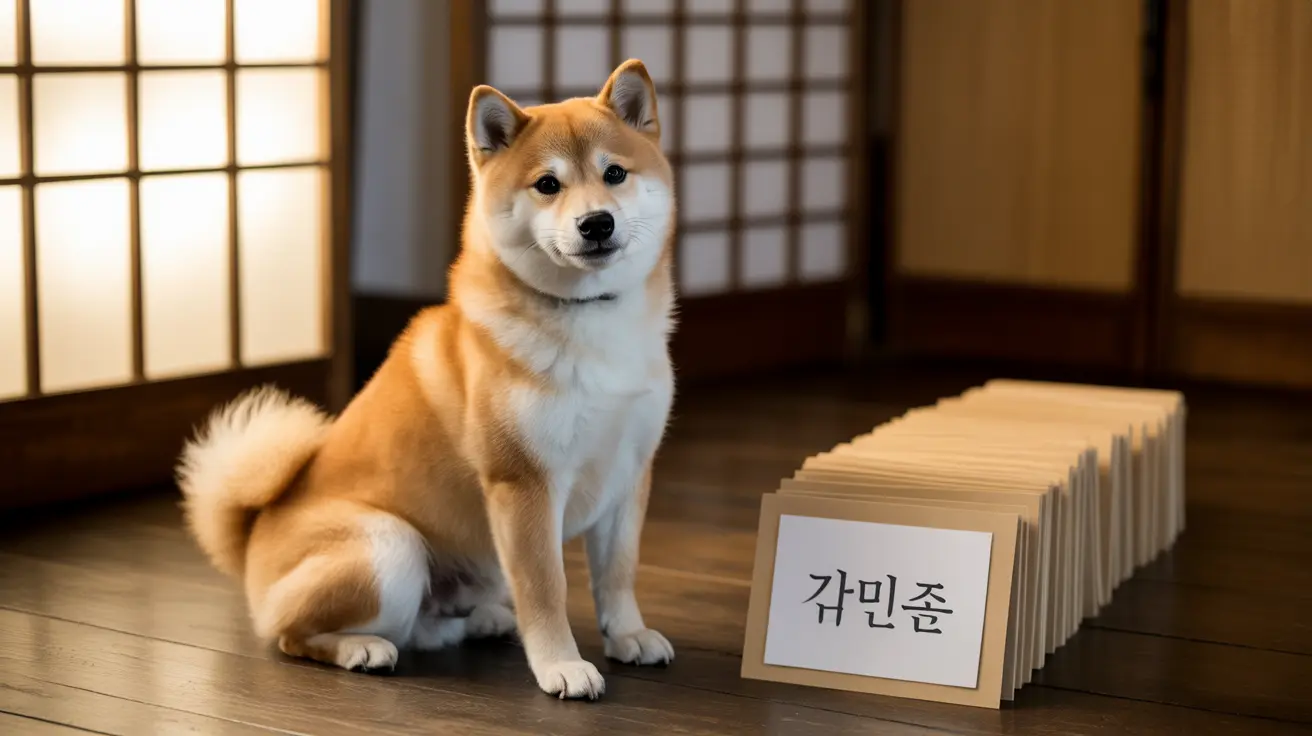Choosing a Korean name for your dog offers a beautiful way to honor East Asian culture while giving your furry friend a meaningful and unique identity. Korean dog names carry deep cultural significance, often reflecting virtues, natural elements, and cherished qualities that make them perfect choices for any canine companion.
Whether you're drawn to Korean culture, seeking a name with special meaning, or simply want something distinctive for your pet, this comprehensive guide will help you understand and choose the perfect Korean name for your dog.
Understanding Korean Dog Naming Traditions
Korean pet naming customs are deeply rooted in cultural values and linguistic beauty. The concept of "jeong" (정), representing deep emotional bonds, often influences how Koreans name their pets. Names are carefully chosen to reflect not just the dog's characteristics but also the owner's hopes and aspirations for their relationship.
Traditional Korean names often consist of two syllables, making them both melodic and easy for dogs to recognize. This practical approach to naming ensures that your dog can clearly distinguish their name from other commands.
Popular Korean Dog Names by Category
Names Inspired by Nature
Many beloved Korean dog names draw inspiration from natural elements:
- Bada (바다) - Ocean
- Hae (해) - Sun
- Dal (달) - Moon
- Nun (눈) - Snow
- Guleum (구름) - Cloud
Character and Personality Names
Names reflecting desirable traits are particularly popular:
- Miso (미소) - Smile
- Chingu (친구) - Friend
- Gwiyeowo (귀여워) - Cute
- Haenguni (행운이) - Lucky
- Yong (용) - Brave
Traditional and Mythological Names
These names carry deep cultural significance:
- Mir (미르) - Dragon
- Saja (사자) - Lion
- Bong (봉) - Phoenix
- Baekjo (백조) - Swan
- Doksuri (독수리) - Eagle
Choosing the Perfect Korean Name for Your Dog
When selecting a Korean name for your dog, consider these important factors:
- Meaning and significance
- Ease of pronunciation
- Your dog's personality and appearance
- Cultural relevance
- Sound and length of the name
It's also helpful to choose a name that you can easily remember and pronounce, even if you're not familiar with the Korean language. Many Korean names have beautiful meanings but remain accessible to non-Korean speakers.
Modern Trends in Korean Dog Names
Contemporary Korean pet culture has embraced both traditional and modern naming conventions. Some pet owners opt for human names, while others choose names inspired by K-pop culture or popular entertainment. This fusion of old and new creates an exciting range of naming possibilities for your dog.
Frequently Asked Questions
What are some popular Korean dog names and their meanings?
Popular Korean dog names include Miso (smile), Bada (ocean), Hae (sun), Chingu (friend), and Sarang (love). These names are chosen for their beautiful meanings and cultural significance.
How do Korean culture and language influence the choice of dog names?
Korean culture emphasizes harmony, respect, and deep emotional bonds. Names often reflect these values, with many incorporating elements of nature, positive character traits, or traditional virtues.
Are there Korean dog names inspired by nature or mythology?
Yes, many Korean dog names draw from nature and mythology. Examples include Mir (dragon), Bada (ocean), Dal (moon), and Saja (lion), each carrying symbolic significance in Korean culture.
How can I choose a Korean dog name that reflects my dog's personality?
Consider your dog's traits and choose a name that matches. For energetic dogs, names like Yong (brave) might fit, while gentle dogs might suit names like Miso (smile) or Dan (sweet).
Why are short, two-syllable names common for Korean dogs?
Two-syllable names are preferred because they're easier for dogs to recognize and respond to. They also maintain a pleasant rhythm that's characteristic of the Korean language.
Remember, choosing a Korean name for your dog is more than just selecting a label - it's about creating a meaningful connection that honors both your pet and the rich cultural heritage these names represent.






